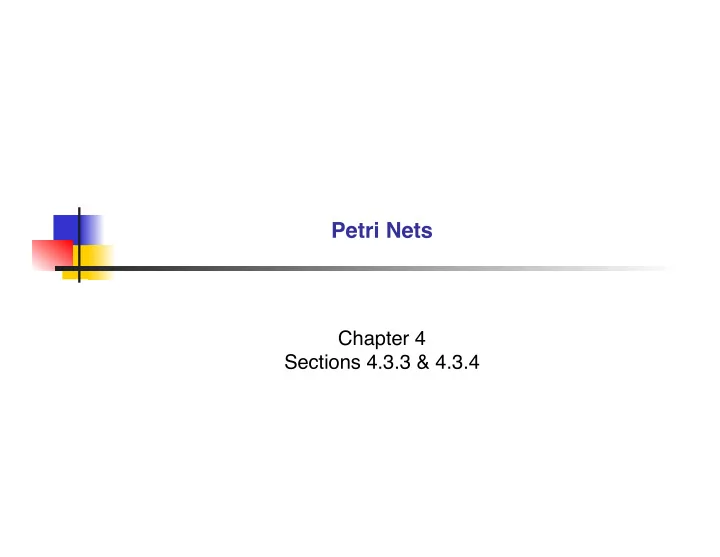

Petri Nets � � Chapter 4 � Sections 4.3.3 & 4.3.4 � � �
Definition of a Petri net � It is a bipartite directed graph with components � � � < P , T , In , Out > � Two types of nodes � P are places � T are transitions � Two types of edges � In ! P " T In are input to transitions � Out ! T " P Out are output from transitions � PN–2 �
Components of a Petri Net � p1, p2 ∈ P � t1 ∈ T � � (p1 , t1) ∈ In � � (t1 , p2) ∈ Out � PN–3 �
Marked Petri net � It is a Petri net augment with a marking M � A marking is a mapping M from places to integers � M : P ! " Designated by tokens in a diagram � PN–4 �
Example of a Petri net transition firing � LP needed LP needed LP allocated LP allocated Allocate Allocate LP LP LP available LP available B after firing A before firing A transition can fire when � Every input place has at least one token � When a transition fires � One token is removed from every input place � One token is added to every output place � PN–5 �
Schematic for modeling semaphores � Have resource Resource Want resource available Free resource Allocate resource Resource available Resource allocated Process does not want resouce Semaphore for free resource Semaphore for get resource PN–6 �
Modeling Mutual Exclusion � PN–7 �
Definition of an event-driven Petri net � It is a Petri net augment with two additional types of nodes � I – Input ports � O – Output ports � In ! ( P ! I ) " T In and Out include ports � Out ! T " ( P ! O ) PN–8 �
Model for a Single Server � A marked event-driven Petri net PN–9 �
Recommend
More recommend